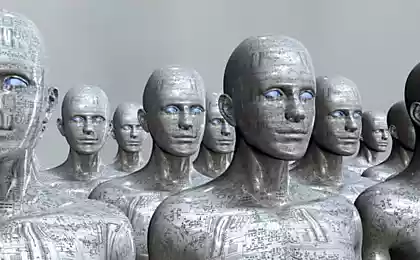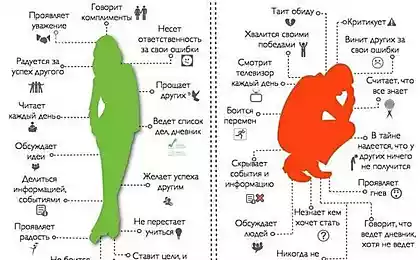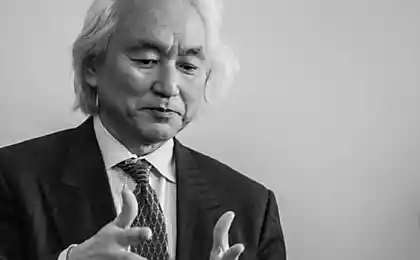281
10 Traps of Consciousness

Man’s thinking cannot be subordinated to any laws that can be universal and operate always and everywhere. Perhaps it is for this reason that from time to time certain errors or certain pattern deviations occur in him, which occur in specific situations and are caused by distorted beliefs. These errors and deviations are called cognitive distortions. There are a huge number of them, and they are all different from each other. We do not aim to describe all possible cognitive distortions, but only to convey the essence of this phenomenon as such, so we will talk only about a few cognitive distortions.
If you hear the concept of “consciousness traps” (“cognitive distortions”) for the first time or do not mind refreshing the knowledge in your memory, we recommend that you read this article, and only then proceed to study the present. We will begin the main part of this work without much introduction.
10 cognitive distortionsSo let's start with one of the most common cognitive biases.
1. The illusion of controlThe presented cognitive distortion is expressed, as a rule, in the inclination of a person to believe that he is able to influence events that are objectively independent of him or that depend only to a negligible degree. Most often, this effect manifests itself in those situations when a favorable outcome of an event is very important for a person and he is somehow involved in it, or when he already knows in advance about the positive outcome. But the opposite effect can be observed - in this case, a person underestimates the level of his influence on the outcome of events.
It should also be noted that along with the overconfidence effect and some other cognitive distortions, the illusion of control is one of the illusions of a positive nature.
2. Professional deformationProfessional deformation is a change in personal qualities (such as ways of behavior and communication, character, value orientations, etc.), occurring under the influence of prolonged performance of professional activity, since the result of the unity of specific activity and consciousness becomes the formation of a professional type of personality.
Most professional deformation is subject to people whose activities are directly related to people, such as psychologists, teachers, personnel specialists, managers, etc. In an extreme form, professional deformation will be expressed in an exclusively formal attitude towards people.
3. The contrast effectThe essence of this cognitive distortion is expressed in the decrease or increase of perceived parameters (compared to their usual) of objects, processes, phenomena or people, if at the previous moment in time such a perceived parameter of an object, process, phenomenon or person had more or less importance. For example, seeing a very beautiful or successful person will make the other person feel less beautiful or successful.
By the way, it is proved that the contrast effect contributes to the formation of high standards, which, in turn, push people to belittle the merits of their potential partners, as well as to spend huge amounts of money on cosmetics, plastic surgery, diet, etc.
4. The curse of knowledgeThe term “curse of knowledge” was first coined by psychologist Robin Hogarth to refer to cognitive distortion, which is that more informed people find it very difficult to solve any problem from the point of view of people who are less informed.
There was even an experiment that confirmed this phenomenon. During the experiment, some people knocked on the table the motif of a popular musical composition, and the other part had to guess this composition. According to the first group, the composition had to guess at least 50% of the second group, but only 2.5% guessed the melody.
Some psychologists are inclined to believe that the curse of knowledge can significantly complicate the learning process.
5. Player errorThis cognitive distortion is often referred to as Monte Carlo’s false conclusion, and reflects a common misconception of randomness. Basically, it is connected with the fact that at the level of intuition a person is not aware of the fact that the probability of the desired result does not depend on the results of random events that took place in the past.
For example, if nine “eagles” fall in a row when tossing a coin, then most will tend to believe that, most likely, a “tail” will fall out for the tenth time, and an “eagle” will fall out. However, this is a wrong opinion, since both “head” and “tails” will fall with the same probability of 1 in 2.
6.Systemic Survivor MistakeSystematic survivor error is a type of systematic selection error, in which a large amount of data is available for one group (the group of “survivors”), and practically nothing is known for the other group (the group of “dead”). It turns out that researchers tend to find traits that unite the “survivors”, but they forget that there is something that unites the “dead”.
An example is the view that people can judge the kindness and intelligence of dolphins by the stories of the people they pushed toward the shore. However, people do not have the opportunity to learn the testimonies of those whom dolphins pushed in the opposite direction.
7.Faith in a just worldThis socio-psychological phenomenon is expressed in the fact that a person believes in a just order of the world and that each of the people gets in life what he deserves, depending on personal qualities and actions. In other words, good people will be rewarded and bad people will be punished.
On this basis, many successful people, for example, blame everyone who is unsuccessful, i.e. the poor are poor through their own fault. Similarly, outside observers believe that the victim may be to blame for the misfortune that happened to her, etc. As for the question of rich and poor, the above opinion has been known to mankind since early centuries.
8. Self-fulfilling prophecyIn essence, it is a prediction that directly or indirectly influences reality, so that it becomes a fulfilled prophecy. There is another definition: a self-fulfilling prophecy is a false definition of a situation that causes a new behavior that turns an initially false representation into reality.
In other words, a seemingly true prediction, but in fact false, can affect human behavior to a tangible extent, for example, through a sense of logical contradiction or fear, so that all his subsequent actions will themselves cause the fulfillment of the prophecy.
9. CryptomnesiaSuch an unusual term is called a special kind of memory impairment in which a person is unable to determine when an event took place, in reality or in a dream. For example, a person does not remember whether he was watching an interesting movie or just witnessed a conversation on this topic; whether he wrote several quatrains or reproduced what he once remembered.
In other words, in cryptomnesia, a person does not remember where this or that information came from, and ideas or creativity belonging to others, but perceived by a person once, after a certain period of time, can be recognized as their own.
10. The effect of first impressionsThe first impression effect is an opinion of someone formed in the first few minutes of the first meeting, but affects the entire subsequent assessment of the person’s personality and activities.
Thanks to the effect of the first impression, you can make quick and generalized impressions of the first person you see and apply this data to the construction of subsequent interaction.
But the first impression effect, along with cognitive distortions such as the order effect, the halo effect, the contrast effect, and others, is among a number of errors that are often made by researchers using the observational method.
If you have a desire, information about other cognitive biases can be found online. It's really incredible how deceptive people's perceptions can be.
They smile at the camera. A moment later they were all dead. With the exception of one.
She decorated the cake with a regular bubble film!
























